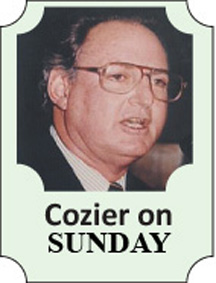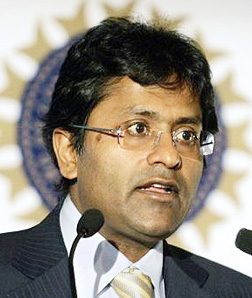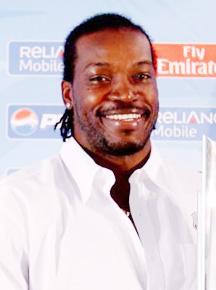Of all the many mysteries surrounding the Indian Premier League (IPL), the most mystifying, on the face of it, has been Chris Gayle’s inability to attract a bid at the auction for the 2011 edition from the multi-millionaire industrialists and Bollywood stars who own the franchise teams.
While three players, all Indians, fetched over US$2 million each and another dozen over US$1 million, one of the most explosive of contemporary batsmen and an entertainer whose power-hitting is made for the shortest form of the game was left on the shelf at the comparatively modest base price of US$400,000.
In the sale for the inaugural IPL in 2008, the bidding for Gayle started at US$250,000. He eventually went to the Kolkata Knight Riders, the team of screen superstar Shahrukh Khan, for US$800,000. He returned in 2009 and again last year.
“I’m sure (in) all those IPL franchises, everyone will know what I’m capable of,” Gayle told an Australian news agency. “I didn’t have anything to prove.”
Of course he didn’t. Just in case anyone in India had forgotten his capacity for ball-beating, he reminded them by blasting 92 off 40 balls, with eight sixes, for Western Australia against Queensland in Australia’s IPL equivalent, the Big Bash, just a few days after the hammer fell on the Indian auction and on his hopes.
Yes, he said, he was “surprised” and “disappointed” not to retain his IPL place.
But he also indicated that he knew he was taking a calculated gamble in forsaking a West Indies Cricket Board retainer contract last November in order to free himself for the IPL, the Big Bash and the other lucrative T20 tournaments springing up everywhere.
 At the same time, it meant passing up the WICB’s offer of US$120,000 and effectively ending his time as captain. “I think the franchises look at it that they want their best players to be available for the full IPL,” he has since reflected.
At the same time, it meant passing up the WICB’s offer of US$120,000 and effectively ending his time as captain. “I think the franchises look at it that they want their best players to be available for the full IPL,” he has since reflected.
The 2011 IPL season runs from April 8-May 15. Gayle would be required for the West Indies home series against India April 23-May 20 and would have to be released under IPL regulations.
Shahrukh Khan and others with IPL investments simply put two weeks availability and US$400,000 together and came up with a bottom line that, even for such a player as Gayle, didn’t compute. Nor was it to say that Gayle could have immediately quit international cricket so to be on hand for the full season.
He, or those who advise him, was surely aware of IPL rules giving national teams first call on their players. From the start, Lalit Modi, then IPL commissioner, made the position absolutely clear.

In a letter to the franchises, he warned against any attempt to lure players away from international cricket to join the IPL.
“This is absolutely against the fundamental structure of the League and the basis of the vision we have set up for ourselves,” he wrote. “IPL was set up to enhance cricket and provide more opportunities but not to take away from international cricket…No deviation will be allowed in this case.”
He advised that any one joining the IPL (which is owned by the official Board of Control for Cricket in India) would need a No Objection Certificate (NOC) from their national board for two years, if even not contracted to that board. It was “to prevent early retirement”.
He was specific on a player who declined to sign a retainer contract – as Gayle, Dwayne Bravo and Kieron Pollard did when offered by the WICB last November.
“That is his choice but, for IPL purposes, he will still need an NOC from his home board,” he explained. “Further, we have informed all the boards that if a player does not play for his country in an approved ftp (future tours programme) tournament, if chosen, and insists on playing IPL at that cost, we will not allow that player to participate in the IPL.”
So it was in 2009 when Gayle had to seek the WICB’s okay to remain on for one more match for the Knight Riders than previously agreed.
It caused him to arrive in London only two days before the West Indies’ first Test against England at Lord’s, a decision that created an inevitable furore, especially since he was captain. A year earlier, Bravo also had to receive similar WICB approval to stay.
He arrived in Jamaica for the first Test against Australia on the same tight time-frame as Gayle at Lord’s.
This year the overlap is too great for any leeway, even if the WICB was inclined to give it.

If there seems a discrepancy between the IPL’s approach to Gayle and that to Bravo and Pollard, who are both engaged for the coming season, it is explained by two points.
Bravo’s was financial. He went for US$200.000, half Gayle’s base fee. The Chennai Super Kings clearly felt it was a bargain to have his all-round talents for two weeks rather than not at all.
Pollard’s retention by the Mumbai Indians for a fee reportedly of over US$1 million was based on his reputation and record as one of the few T20 specialists since the newest version of the game was globalised – middle-order six hitter, steady medium-pacer, sharp fielder.
It was first fashioned for Trinidad and Tobago in the inaugural Champions League and since has been enhanced with Mumbai, South Australia and Somerset.
In addition, Pollard is likely to be available for most of the tournament as he has yet to secure a place in the West Indies team in the longer games.
While Gayle himself is “disappointed”, the way things have turned out is a bonus for the West Indies.
“It’s not about calling it quits,” he said, looking forward to the imminent World Cup and subsequent home series against Pakistan and India.
“You still have to give back to the international game.”
If his statements have often been contradicted by his deeds, Gayle is still only 31 and his presence as experienced, self-assured opening batsman, in all forms of the game, is crucial to a team in transition.





